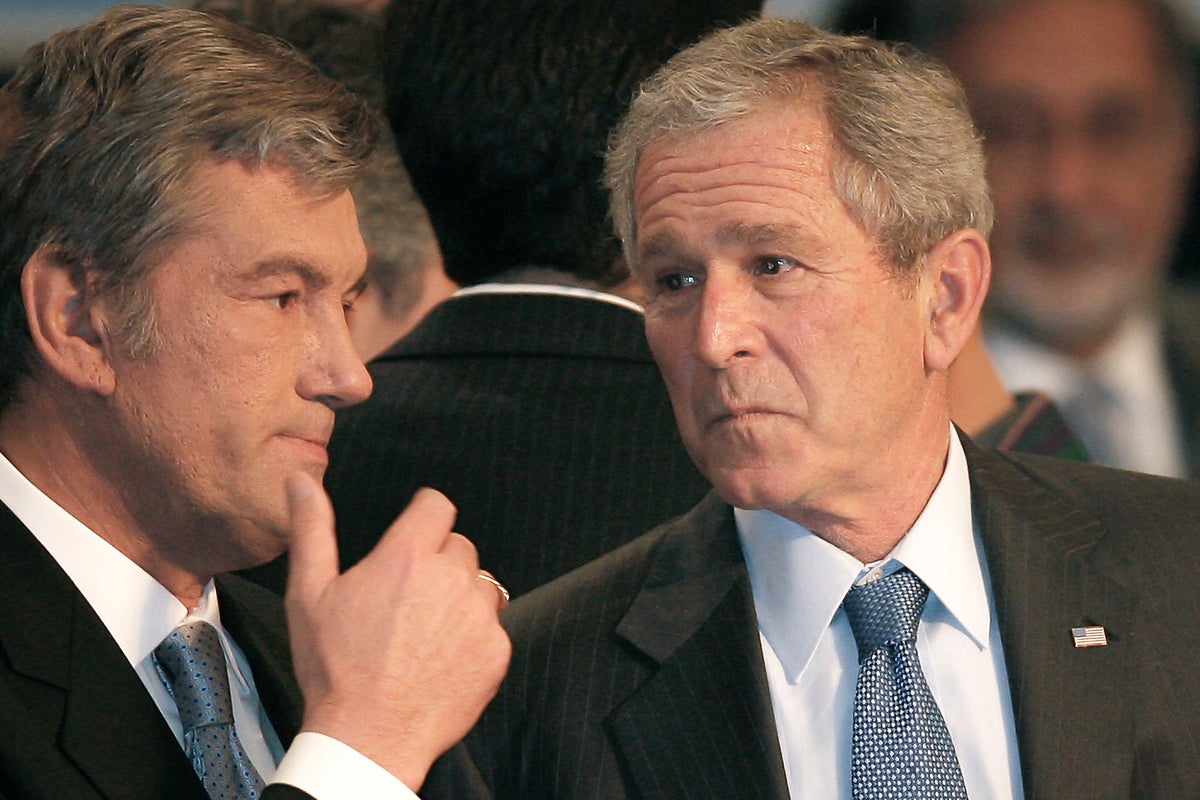
NATO returns on Tuesday to the scene of one of its most controversial decisions, intent on repeating its vow that Ukraine — now suffering through the 10th month of a war against Russia — will join the world’s biggest military alliance one day.
NATO foreign ministers will gather for two days at the Palace of the Parliament in the Romanian capital Bucharest. It was there in April 2008 that U.S. President George W. Bush persuaded his allies to open NATO’s door to Ukraine and Georgia, over vehement Russian objections.
“NATO welcomes Ukraine’s and Georgia’s Euro-Atlantic aspirations for membership in NATO. We agreed today that these countries will become members of NATO,” the leaders said in a statement. Russian President Vladimir Putin, who was at the summit, described this as “a direct threat” to Russia’s security.
About four months later, Russian forces invaded Georgia.
Some experts describe the decision in Bucharest as a massive error that left Russia feeling cornered by a seemingly ever-expanding NATO. NATO counters that it doesn't pressgang countries into joining, and that some requested membership to seek protection from Russia — as Finland and Sweden are doing now.
More than 14 years on, NATO will pledge this week to support Ukraine long-term as it defends itself against Russian aerial, missile and ground attacks — many of which have struck power grids and other civilian infrastructure, depriving millions of people of electricity and heating.
“NATO will continue to stand with Ukraine for as long as it takes. We will not back down,” the organization’s top civilian official, Secretary-General Jens Stoltenberg, vowed last week.
North Macedonia and Montenegro have joined the U.S.-led organization in recent years. With this, Stoltenberg said, “we have demonstrated that NATO’s door is open and that it is for NATO allies and aspirant countries to decide on membership. This is also the message to Ukraine.”
This gathering in Bucharest is likely to see NATO make fresh pledges of non-lethal support to Ukraine: fuel, electricity generators, medical supplies, winter equipment and drone jamming devices.
Individual allies are also likely to announce fresh supplies of military equipment for Ukraine — chiefly the air defense systems that Kyiv so desperately seeks to protect its skies. NATO as an organization will not offer such supplies, to avoid being dragged into a wider war with nuclear-armed Russia.
But the ministers, along with their Ukrainian counterpart Dmytro Kuleba, will also look further afield.
“Over the longer term we will help Ukraine transition from Soviet-era equipment to modern NATO standards, doctrine and training,” Stoltenberg said. This will not only improve Ukraine’s armed forces and help them to better integrate, it will also meet some of the conditions for membership.
That said, Ukraine will not join NATO anytime soon. With the Crimean Peninsula annexed, and Russian troops and pro-Moscow separatists holding parts of the south and east, it’s not clear what Ukraine’s borders would even look like.
Many of the 30 allies believe the focus now must be uniquely on defeating Russia.
But even as economic pressure — high electricity and gas prices, plus inflation, all exacerbated by the war — mounts on many allies, Stoltenberg would not press Ukraine to enter into peace talks, and indeed NATO and European diplomats say that Putin does not appear willing to come to the table.
“Most wars end with negotiations,” he said. “But what happens at the negotiating table depends on what happens on the battlefield. Therefore, the best way to increase the chances for a peaceful solution is to support Ukraine.”
The foreign ministers of Bosnia, Georgia and Moldova — three partners that NATO says are under increasing Russian pressure — will also be in Bucharest. Stoltenberg said NATO would “take further steps to help them protect their independence, and strengthen their ability to defend themselves.







